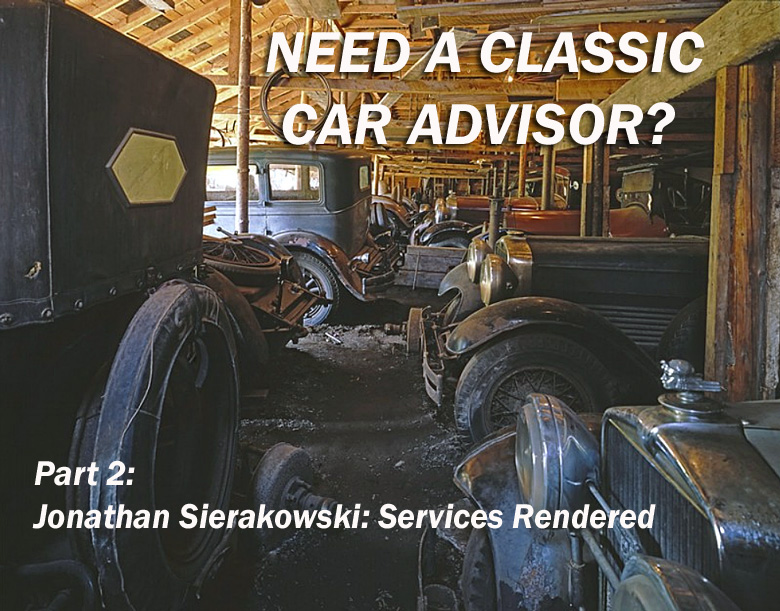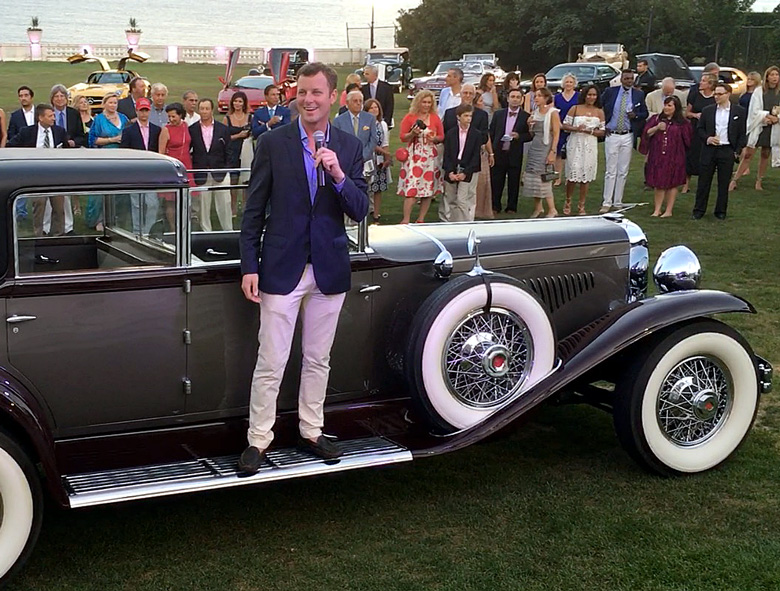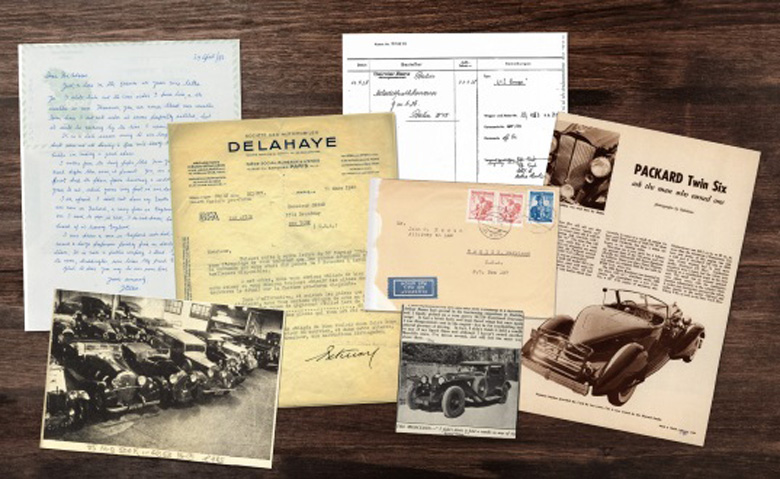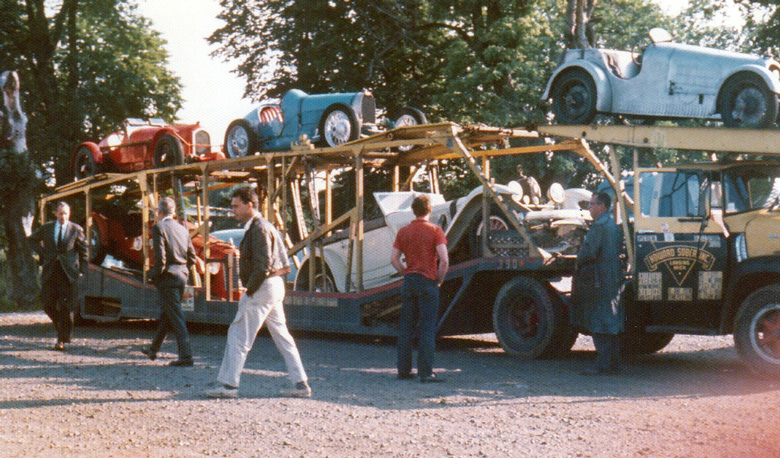By Pete Vack
Last week we introduced our readers to one of the younger generation of classic car enthusiasts. (Read Part 1) Jonathan Sierakowski has deftly managed to make his passion for classic cars into a profession as an appraiser and advisor, filling a growing need amoung car collectors and collections. Sierakowski offers four service categories: Acquisition & Sales; Consulting; Historical Research; and Appraisals & Estate Planning. They are listed and clearly laid out on his website. Our challenge was to ask him the difficult questions that arise in each category. Bear in mind that Jonathan focuses on the high-end coachbuilt classics.
It is clear that Sierakowski is providing much needed help in every well-thought-out category. At the same time, such services would most likely not have been either necessary or even thought of when I was purchasing my collector’s cars from 1970 to 2000. But today, I imagine that he should be in great demand. Reflecting on how the business has developed, he said “As far as the collector car/hobby has come from the Wild West days, it still is very much the ‘used car’ business. It makes my wife cringe when I call it that given the level at which I’ve been privileged to play, the things I see every day make me shake my head. The good news is that the collector approach is getting more sophisticated, more aligned with the fine art world, so advisory services will be a part of the future.”
What and how do you charge for your services?
Good question since there’s no industry standard therefore no set formula. First comes a conversation with the potential client to determine their needs and the scope of work. The conversation typically starts with finding out what they know, what they are interested in, what motivates them. Knowing my client is the first step in building a successful and long-term relationship. Sharing knowledge is a major component in building trust and confidence. Then I do a proposal that could be hourly, project-based, or commission-based.
Very little of the work I’ve done is open and shut. The relationship typically grows and evolves and can include extension of the original work, addition of more projects and services with a defined start and finish, or turns into more of an ongoing arrangement when the client utilizes me in a larger role in their collecting activity. How we start and where we go all depends on the client’s knowledge and level of engagement.
Why are your clients drawn to old cars?
Collecting cars is about passion, excitement, enjoyment, friendships- it’s not about money. I don’t work with people that approach cars with an investment or speculative mindset. I will acknowledge that with patience, discipline, and pursuit of quality, a collection can pay you back or generate a return, but that should never be the end goal.
What are the ages of your clients?
My typical client age range is 55-70; obviously participation requires financial resource that most don’t reach until later in life, however some clients are in their 30s and 40s.
Acquisitions and Sales
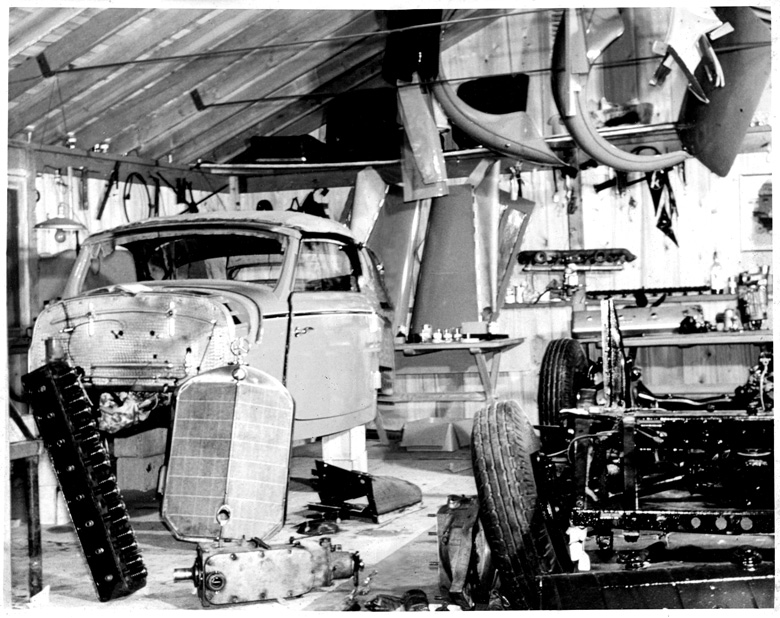
You get what you pay for: this scene is a bit overwhelming if you have been in the shoes of someone who shunned the specialist in favor of a low-cost approach.
Both novice and seasoned enthusiasts can benefit from objective clarity and depth of knowledge when seeking to identify, locate, and secure that special example.
Do you actually see the cars and verify? Isn’t that a bit risky? Just the number of fakes out there is scary.
When vetting a potential acquisition, I see, inspect, and verify. Prewar cars especially are touchy-feely and you have to look at them, check numbers, cross-reference provenance, even inspect method of construction for authenticity. The number of fakes and subtly modified things is something to be aware of, but that’s why I have invested heavily in research archives, books, specialist historian, and library relationships around the world. There’s risk, sure, but I have great resources and dig deeper so my degree of confidence is higher. Earlier this year I saved a client seven-figure sum from buying something that wasn’t what it was purported to be. As far as he is concerned, any compensation paid for the duration of our relationship is to the good.
My ideal client has an intellectual curiosity and a desire to own and experience a given type of car.
Do upscale buyers today have an in-depth knowledge of cars and automotive history? Or are most just looking to turn a profit?
Again, profit seekers are not on my wheelhouse. The really upscale buyers that already possess the in-depth knowledge of cars and history could be called connoisseurs and generally don’t need advice, but they may use me as an intermediary in a private sale or auction setting to remain private before, during, and often after a transaction.
The opportunity for engagement with those individuals often comes when I am representing a great car they may want. My ideal client has an intellectual curiosity and a desire to own and experience a given type of car, and a desire to continually learn.
Do you sell cars on behalf of your clients?
I do sell on behalf of clients, and that can be just one part of managing a collection as well as identifying and executing on long-term strategy. The parameters we set out in the beginning can indicate a plan of upgrading, a pivot to another area of interest, or a total exit. Research, valuation, assembling documentation and creating a portfolio are all part of the process before marketing- I don’t want to represent something I haven’t touched, or can’t answer obvious questions on.
Consulting
I draw on complementary experiences in restoration, collection management, media, and auctions.
What goes up must come down. When advising clients, how do you warn them that one day the old car market will eventually crash, as it did most resoundingly in 1990.
I believe that good cars represent a sound store of value for the long term but to your point, part of my job is to make a buyer aware of pricing history and the general state of the market. Fortunately with coachbuilt cars where I am most active there is not as much volatility, but the discussion still needs to be about differentiating truly once-in-a-generation opportunities vs. those that are not. The research is especially important when consulting on a restoration, but before getting into decision points sometimes I need to help get a particular car into the appropriate shop.
If we’re talking about a sports car that’s a different story, it would be hard to tell someone it’s a great idea to buy a in the rapidly accelerating market leading up to 2015. I’m currently helping a couple from Illinois locate a Porsche 356A Speedster, fortunately this is an opportune time to be patient yet get exactly what they want at the right price.
Historical Research
Although collectible since the late 1930s, the term “provenance” has only been associated with automobiles much more recently. My “automotive genealogy” approach has an established track record that benefits owners, restorers, and ultimately the cars.
This is very interesting…perhaps the most interesting part of your job. I noted a few brief examples of found photos on your site. But finding the facts must often be a very difficult and time-consuming task. In this day and age, one (a reader) might assume that if the information on a certain car has not been already found, it probably won’t be.
Have you run into these problems when doing research?
Research is the most interesting part of the job by far, and it only continues to be of greater importance as time marches on. We are definitely in a critical period where witnesses to events that happened 50-60-70 years ago are waning. Living memory along with a lot of documentation is being lost every day. I spent a lot of time in contact with old collectors, corresponding as a way of creating source documentation, and saving as much original material as I can. Just the other day I received two binders of unpublished Packard photos from the 1950s. It’s all time invested in creating a greater resource that I can tap into when needed.
Most people new to the hobby get hit with terms like “build sheet” “certification” “numbers matching”… so the subsequent notion of having photos and precise documentation resonates with those newer collectors more strongly at first. It’s harder for people who have been involved for years or decades to see how the world is changing, so some adapt and some don’t. When you stop and think about it, it used to be the Wild West with the outrageous claims and representations being made.
What are your resources and how do you go about research?
If someone wants research done the first step is to inspect and gather all the relevant data from the car itself, then I want to see what they have for a file, or document what may be merely apocryphal- sometimes there might be a shred of truth to a story. Put all the pieces on the table and go from there.
From there I go to marque specialists, clubs, previous owners and spread out from there. I have an enormous library with books, auction catalogs and some pretty obscure archival material that is unique and irreplaceable which serves as a proprietary base. I get some great material from families of previous owners who are no longer involved with cars.
European cars can be just as tricky as some American cars, but fortunately I have built a substantial network of contacts over in Europe and we help each other. I have set a pretty good track record of digging up information on cars where others thought it was impossible. It’s not always possible to go back to day one and I get acknowledgement from every client that the research process is not precise and the desired outcome can’t be guaranteed, but my track record is pretty good and even if a project is closed I’m always happy for the opportunity to share something new I may come across later on.
Appraisals and estate planning
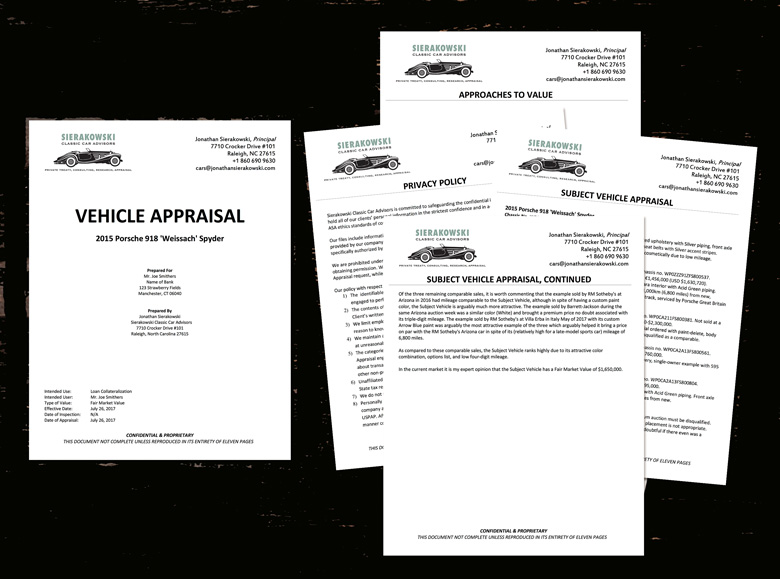
There are many reasons to have your collection appraised; a credible professional appraisal combines diligence, research, and analysis.
Inventories and appraisals are required for many purposes and knowing where a collection stands is also the first step in estate planning.
Like all of your services, this is something that can be very valuable to a client. Is interest increasing?
I do a lot of appraisal work for insurance, estate planning, and often people who just want to know the current market value. The biggest growth area in appraisal service is via people who are leveraging their automobile assets by collateralizing them, and I would say estate planning is second largest.
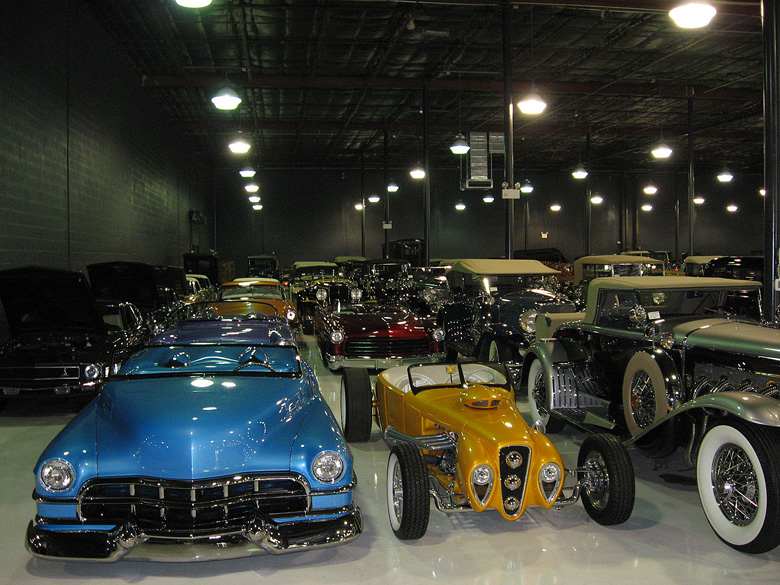
In early 2010 Sierakowski was among the first to catalog cars being sold from the estate of John O’Quinn. A recent illustration of the need for proper estate planning.
But interest in estate planning is absolutely increasing. Let’s be honest, planning for the time after you’re gone is not always comfortable, but a topic more and more people are inclined to confront given that automobiles can represent a not inconsequential portion of one’s assets, and most people realize there are financial and emotional consequences for not having everthing in order.
A good friend from New England told me “my wife knows to call you if something happens.” That is not a plan. We had a frank conversation about valuations, what he wanted to happen (and what he didn’t want to happen), and I was able to outline the broad strokes so he could go to the right attorney to turn the plan into a legal framework. In the end the couple is very happy and both have peace of mind in more than just my ability to act in their best interests.
